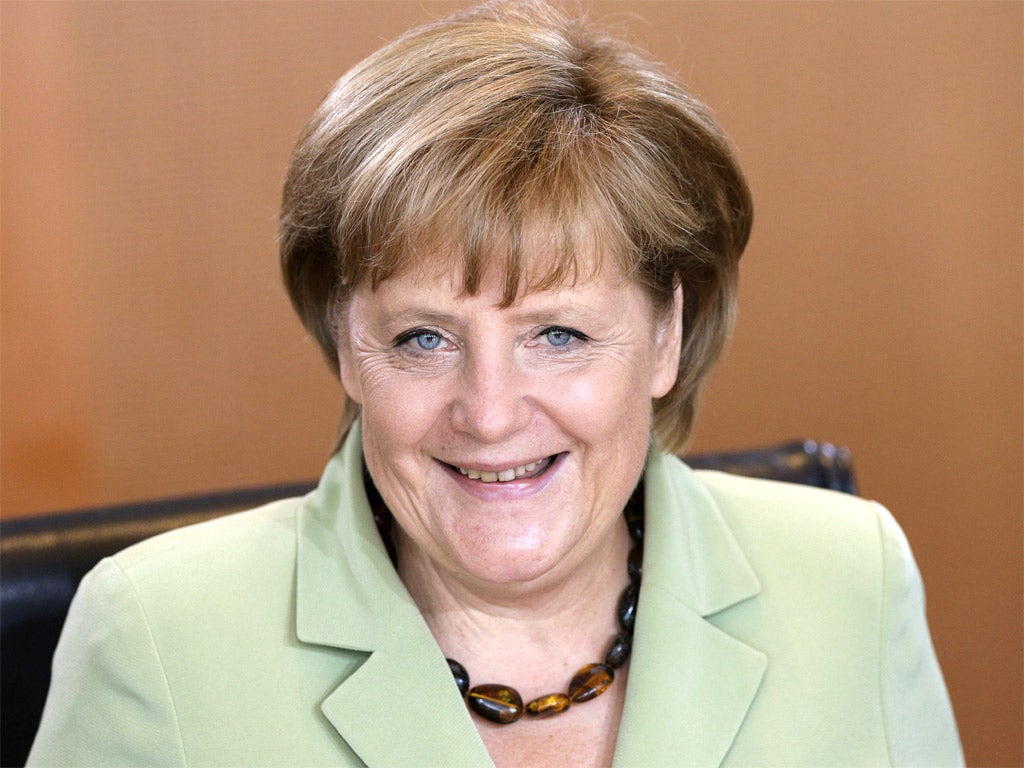Former loyalist accuses Angela Merkel of crushing dissent
Chancellor under attack from her own party as splits widen over how to deal with Greece crisis

Your support helps us to tell the story
From reproductive rights to climate change to Big Tech, The Independent is on the ground when the story is developing. Whether it's investigating the financials of Elon Musk's pro-Trump PAC or producing our latest documentary, 'The A Word', which shines a light on the American women fighting for reproductive rights, we know how important it is to parse out the facts from the messaging.
At such a critical moment in US history, we need reporters on the ground. Your donation allows us to keep sending journalists to speak to both sides of the story.
The Independent is trusted by Americans across the entire political spectrum. And unlike many other quality news outlets, we choose not to lock Americans out of our reporting and analysis with paywalls. We believe quality journalism should be available to everyone, paid for by those who can afford it.
Your support makes all the difference.Chancellor Angela Merkel faced a fresh onslaught from within her own party yesterday as a senior Christian Democrat delivered a withering critique of her leadership style and accused her of crushing dissent, stifling debate and making it impossible for anyone to succeed her.
The outspoken attack followed a series of critical comments from other normally loyal party members. This time it came from the influential conservative MP Josef Schlarmann, who heads Germany's powerful small business association – a group considered to represent the backbone of the country's economy.
Mr Schlarmann told the Leipziger Volkszeitung: "There is no real debate any more because everything in Ms Merkel's Christian Democratic Party is presented as having no alternative. It is like eating in a college canteen which offers only one choice of meal a day. Anyone who doesn't like the taste of it is kept away."
The MP said that under Chancellor Merkel, Germany's conservatives had been prevented from holding rigorous policy discussions about vital issues such as the euro crisis and Germany's plans to end the use of nuclear power. He said the subjects were simply not properly dealt with.
"All the power in today's Christian Democratic Party is concentrated in the Chancellor's office and all ministers are completely dependent on the Chancellor. Ms Merkel can appoint them and dismiss them at will."
Mr Schlarmann described the Chancellor's leadership formula as the "Merkel system" which he said was a ruthless tactical arrangement designed to see off rivals or potential successors. "There is no one who can succeed her. Under the present conditions even a potential successor cannot expect to replace her. It is impossible," he said.
His comments came after some outspoken criticism of Ms Merkel's policies on Europe from other conservative MPs. On Monday, Michael Fuchs, the conservative deputy parliamentary leader broke with the Chancellor's standard line on Greece, which holds that Germany wants Athens to remain in the eurozone.
Instead, Mr Fuchs declared that Germany would veto the next Greek aid package if the country proved unable to live up to its reform agenda and said that if necessary Athens should leave the eurozone and be helped with a sort of European " Marshall plan".
Markus Söder, the Bavarian Finance Minister and a senior member of the Bavarian conservatives, the sister party to Ms Merkel's Christian Democrats went further by demanding that Germany "make an example" of Greece and banish it from the eurozone. Further aid for Athens would be like "pouring water into the desert," he said.
The growing conservative opposition to Ms Merkel and her policies on Europe has been reflected in several opinion polls which have shown that a majority of Germans are opposed to further bailout funding for ailing eurozone countries like Greece.
Mr Schlarmann said recent defeats for the conservatives in state elections in Baden-Württemberg and North Rhine-Westphalia did not bode well for the party.
Greece begs for more time to begin cutbacks
Athens could be granted more time to implement harsh austerity measures after its efforts to persuade its eurozone partners that Greece's stymied growth is unlikely to show any signs of recovering if new cutbacks are enforced.
Germany's Foreign Minister, Guido Westerwelle, said yesterday that Athens should be granted an extension for "the lost time from the Greek election campaign". Whether he will meet a demand from the Greek Prime Minister Antonis Samaras for an extra two years remains to be seen. The issue likely to form the crux of a meeting between Mr Samaras, the German Chancellor Angela Merkel and the French President François Hollande next week.
The Greek government has to find an extra €11.5bn of savings over the next two years under an agreement with the European Union, European Central Bank and International Monetary Fund. The so-called Troika is about to issue a report on Greece's progress. Should the report conclude that Athens is moving too slowly, loan payments would be suspended, leading almost inevitably to its withdrawal from the eurozone.
Alistair Dawber
Subscribe to Independent Premium to bookmark this article
Want to bookmark your favourite articles and stories to read or reference later? Start your Independent Premium subscription today.
Join our commenting forum
Join thought-provoking conversations, follow other Independent readers and see their replies
Comments